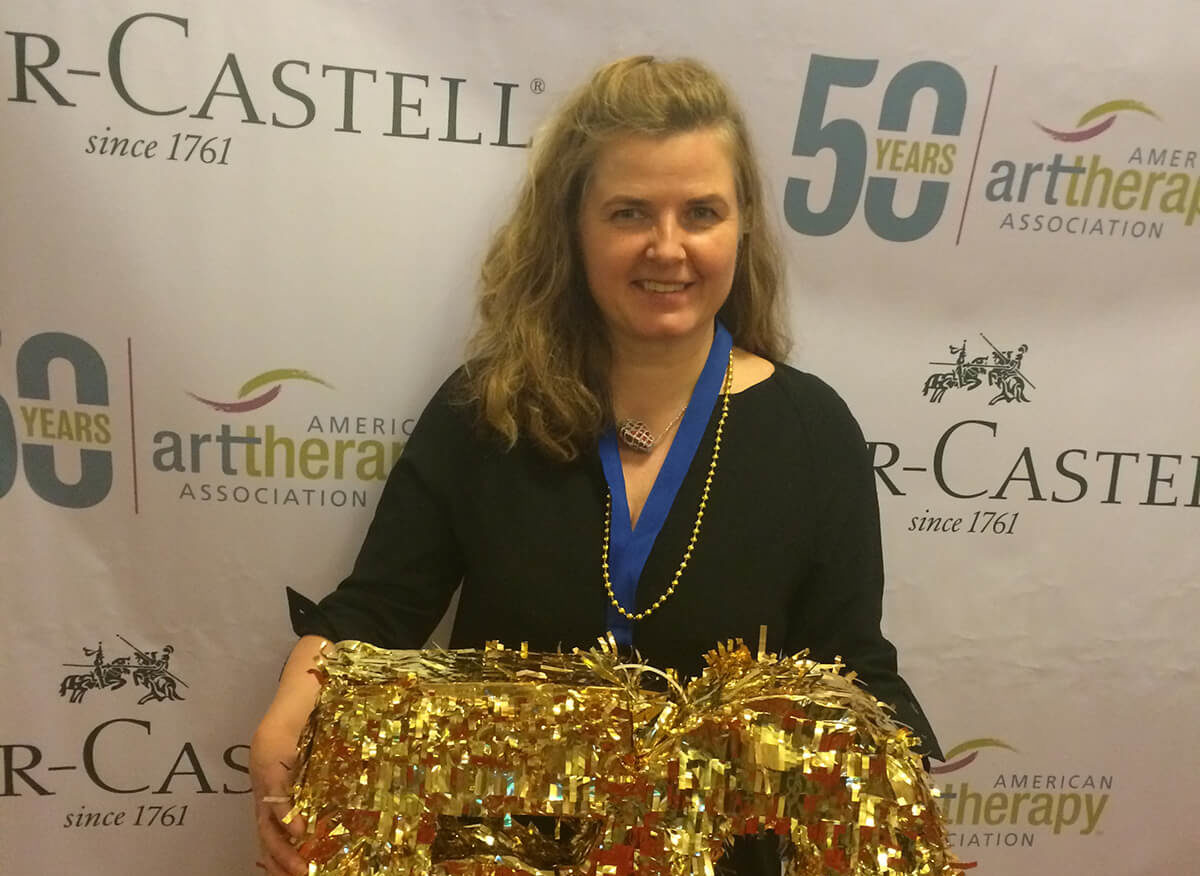
Celebrating 50 Years of Healing Through Art
30. október til 3. nóvember 2019 í Kansas City Marriott Downtown.
Quantitative and qualitative research on ‘Memory Drawing’ (Ottarsdottir, 2018; in press) which was conducted in the year 1999-2000 (Ottarsdottir, 2005) will be reviewed in the presentation.
Research about the effectiveness of drawing compared to writing, in facilitating memory over differing time frames will be reviewed. The way in which sensitive emotional material can be brought up and processed through such memory drawings will be demonstrated. The memory drawing research will be contextualised within the literature on related research studies, methods and theories. Examples of the application of the memory drawing method will be provided. Complexities of the therapeutic and educational processing included in memory drawing when applied within therapy or education will be considered in light of theories of art therapy and educational psychotherapy.
Memory of drawings and words was compared for 134 subjects in the quantitative part of the research, which aimed to investigate the effectiveness of drawing, compared to writing, in facilitating memory over short and long time periods. The research showed that drawing is effective in facilitating long-term memory. When drawing/writing was recalled three weeks following the original memorisation, the median amount of recalled words/drawings was two written words and five drawn. The research findings also showed that drawing is generally as much as five times more effective then writing for long-term memory when the drawings/words were recalled nine weeks after the original memorisation, without any recall within the nine weeks period. Research regarding such long-term memory of drawings has not been conducted prior to now.
Five children who had experienced stress and/or trauma and had specific learning difficulties participated in the qualitative case study part of the research. The aim of the research was to design, study and test a therapeutic method which would facilitate coursework learning, including memorising coursework, and enhancing the emotional well-being of the client. Theories of art therapy (e.g. Edwards, 2004) and educational psychotherapy (e.g. Best, 2014) contributed to the theoretical framework of the therapeutic method developed through the research. The qualitative case studies demonstrated the way in which memory drawing can facilitate coursework learning including memorisation.
In 2016, the psychologists Wammes, Meade, & Fernandes introduced their research which compared short-term memory of written and drawn words. Art therapy theories and methods are excluded in Wammes et al. (2016) research. Art therapy theories and methods were found to be important in terms of memory drawing in order to explore, understand and explain the function of memory drawing for processing emotions and facilitating memory of coursework. The memory drawing and the therapeutic process indicated that sensitive emotional material can be brought up and processed through such drawings. An art therapy framework was also found to be important for considering the ethics and drawing boundaries for the memory drawing method presented, in order to create safe spaces for students and clients who engage in creating memory drawings, especially within the classroom, when memory drawings are made by vulnerable pupils who have experienced stress and/or trauma and have lack of support in their lives.
Nánari upplýsingar: https://www.arttherapy.org/upload/ConferenceBrochure.pdf
Best, R. (2014). Educational psychotherapy: an approach to working with children whose learning is impeded by emotional problems. Support for Learning, 29(3), 201–216. https://doi.org/10.1111/1467-9604.12058
Edwards, D. (2004). Art therapy. London: Sage Publications.
Ottarsdottir, U. (in press). Ethical Concern when Applying Drawing for Memory: Research Conducted in Iceland. In: Audrey Di Maria (Ed.). Exploring Ethical Dilemmas in Art Therapy. England and USA: Routledge.
Ottarsdottir, U. (2018). Processing Emotions and Memorising Coursework through Memory Drawing. ATOL: Art Therapy OnLine, 9(1). Retrieved from: http://journals.gold.ac.uk/index.php/atol/article/view/486/pdf
Ottarsdottir, U. (2005). Art Therapy in Education: for Children with Specific Learning Difficulties who Have Experienced Stress and/or Trauma. Unpublished Ph.D. thesis, University of Hertfordshire, Hatfield.
Wammes, J. D., Meade, M. E., & Fernandes, M. A. (2016). The drawing effect: Evidence for reliable and robust memory benefits in free recall. The Quarterly Journal of Experimental Psychology, 69(9), 1752–1776. https://doi.org/10.1080/17470218.2015.1094494